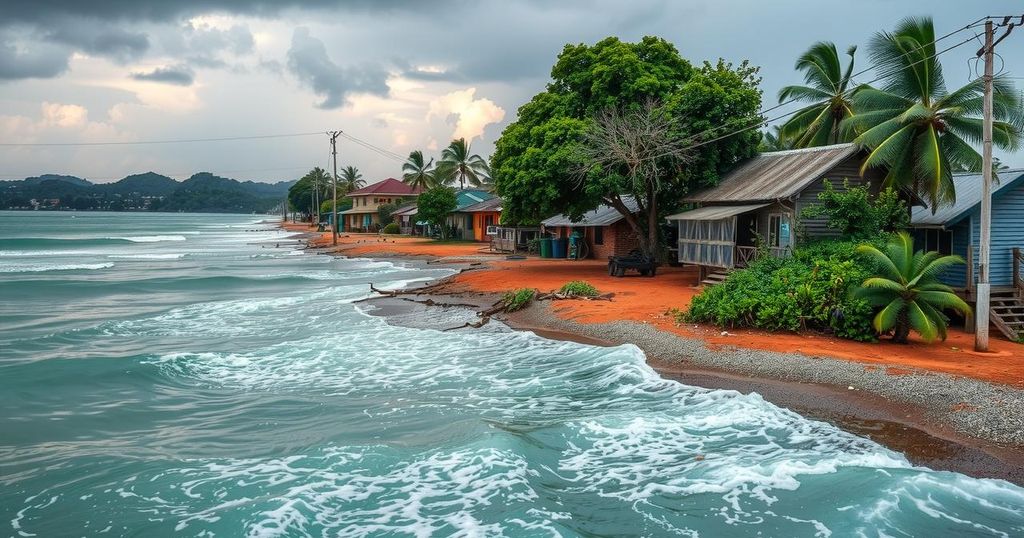Cyclone Chido has significantly impacted northern Mozambique, displacing thousands and causing severe damage. This cyclone is part of a disturbing increase in extreme weather events in southern Africa, driven by climate change. Experts emphasize the necessity for improved emergency preparedness, long-term resilience, and international assistance to address the rising challenges of climate change.
Cyclone Chido has wreaked havoc across northern Mozambique, having made landfall on December 15, following its passage through regions of the Comoros archipelago. The cyclone’s impact has led to the displacement of thousands of individuals, particularly in the Cabo Delgado and Nampula provinces. This incident follows a worrying trend of severe weather events in southern Africa, which has seen increasingly frequent cyclones in recent years, notably Cyclone Freddy in 2023 and Cyclone Idai in 2019.
Experts indicate that climate change plays a significant role in the intensification of these storms. Lucy Mtilatila, Director of Climate Change and Meteorological Services in Malawi, emphasized, “It is clear that climate change is affecting us. We used to have tropical cyclones hitting Malawi only once in a decade. Currently, the frequency of such events is markedly increased.” The cyclone has left areas without power, and in some regions, ongoing assessments are crucial to determine the full extent of the damage.
Reports indicate that Cyclone Chido produced winds reaching up to 260 km/h (160 mph) and precipitated over 250 millimeters (10 inches) of rain in merely twenty-four hours. This has led to the destruction of infrastructure, loss of life, and increased risk of waterborne diseases. UNICEF representatives have voiced concerns regarding the cyclone’s impact on children’s health, education, and overall community welfare in Mozambique.
Despite the devastation wrought by Cyclone Chido, Malawi’s preparedness has earned some praise. Mtilatila noted that institutions were better equipped to respond than in previous years, thanks to improved coordination between national and district teams. Nonetheless, the toll of repeated natural disasters has severely tested local resilience, given the communities have yet to fully recover from earlier cyclones.
Looking ahead, Malawi confronts ongoing challenges related to drought and food insecurity, exacerbated by climate-related conditions. There is an urgent need for increased international support to fortify infrastructure, promote sustainable agricultural practices, and address the underlying causes of climate change. As Mtilatila observed, “As we are being impacted by these cyclones, we are learning a lot. So, as we are building back, we do it better so that we should not make ourselves vulnerable.”
The article outlines the growing climate challenges faced by Mozambique and Malawi, particularly the recent impact of Cyclone Chido, which has resulted in significant devastation and displacement. The context of increasing cyclonic activity in southern Africa is linked to climate change, stressing the urgent need for improved preparedness at national and community levels. Insights from climate experts and relief organization representatives provide a deeper understanding of the immediate and long-term challenges that these countries encounter in the face of recurrent natural disasters.
The devastation caused by Cyclone Chido serves as a stark reminder of the heightened climate challenges faced by Mozambique and Malawi. With the increasing frequency and severity of cyclones attributed to climate change, both countries must enhance their preparedness and resilience strategies. The urgent need for international support in rebuilding their infrastructures and mitigating food insecurity remains critical as these nations aspire to adapt to the evolving climate landscape.
Original Source: www.dw.com






